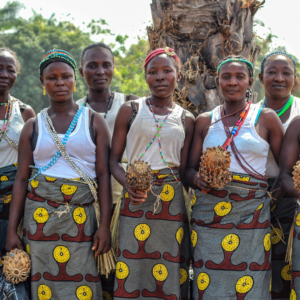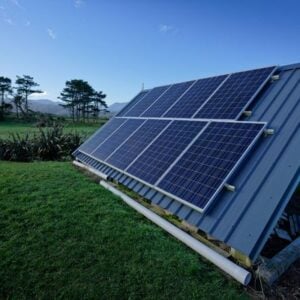The SDG7 Action Forum emphasized a critical truth: without visibility, there is no inclusion. Women remain largely invisible in energy data, and this invisibility perpetuates inequality, limiting their participation in and benefits from the clean energy transition. To achieve a just and sustainable energy future, women must be recognized, counted, and empowered as central actors in shaping the sector.
Held in New York alongside the UN General Assembly and the Climate Ambition Summit, the SDG7 Action Forum highlighted the urgent need for bold, accelerated action on SDG7 over the next five years and beyond. While energy access has made notable progress, clean cooking remains stagnant, and women continue to face disproportionate burdens. Currently, women hold only 32 percent of renewable energy jobs and just 5 percent of utility board positions, leaving hundreds of millions without electricity or clean cooking access by 2030 if trends continue.
A major driver of this inequality is the lack of gender-disaggregated data. SDG7 is among the few goals without a dedicated gender indicator, meaning women’s needs, contributions, and challenges are often erased from policy and funding priorities. This systemic invisibility undermines progress, as what cannot be measured is rarely prioritized.
Momentum is building to address these gaps. At the High-Level Political Forum, UN organizations, UN Women, and the Gender and Energy Compact called for gender indicators in global energy reporting, with backing from governments like Sweden, Canada, Iceland, and the African Union. Initiatives such as the International Energy Agency’s upcoming Indicator Handbook on People-Centred Clean Energy Transitions aim to integrate gender considerations into energy policies, but data alone is insufficient; political will is essential to effect real change.
The coming years will be pivotal. Global events such as the 2026 High-Level Political Forum and COP30 will test whether gender-just transitions become political priorities or remain symbolic commitments. Success depends on governments adopting gender indicators, civil society maintaining pressure, and the development community coalescing around a shared, evidence-backed agenda.
Women are already driving inclusive energy transitions. The 2025 UN-Energy Annual Progress Report shows that the Gender and Energy Compact has empowered over 200,000 women, creating more than 100,000 jobs and enterprises. These achievements demonstrate the transformative potential of intentional, inclusive efforts that place women at the center of energy policy and practice.
ENERGIA calls for urgent action in four priority areas: addressing energy poverty and unpaid care work, removing barriers to women’s employment and leadership, investing in women-led enterprises, and embedding gender-responsive planning and regulation into energy policy. Visibility must lead to accountability, and accountability must drive systemic transformation.
The SDG7 Action Forum delivered a clear message: progress is insufficient, and women’s continued invisibility risks undermining the promise of leaving no one behind. Inclusion begins with visibility, and policymakers must ensure women are seen, counted, and empowered, or risk perpetuating inequality in the energy transition.







